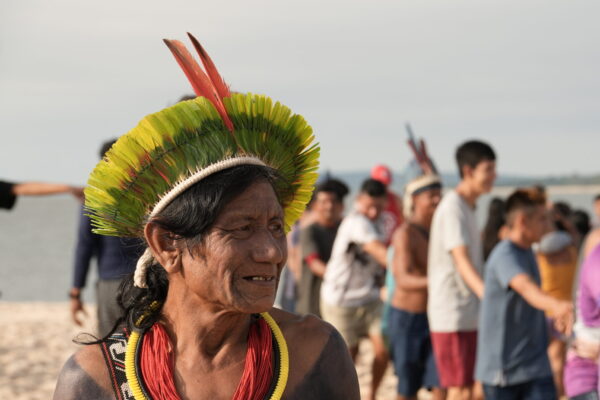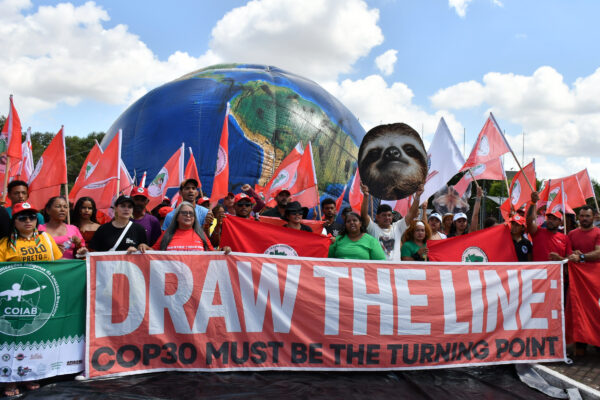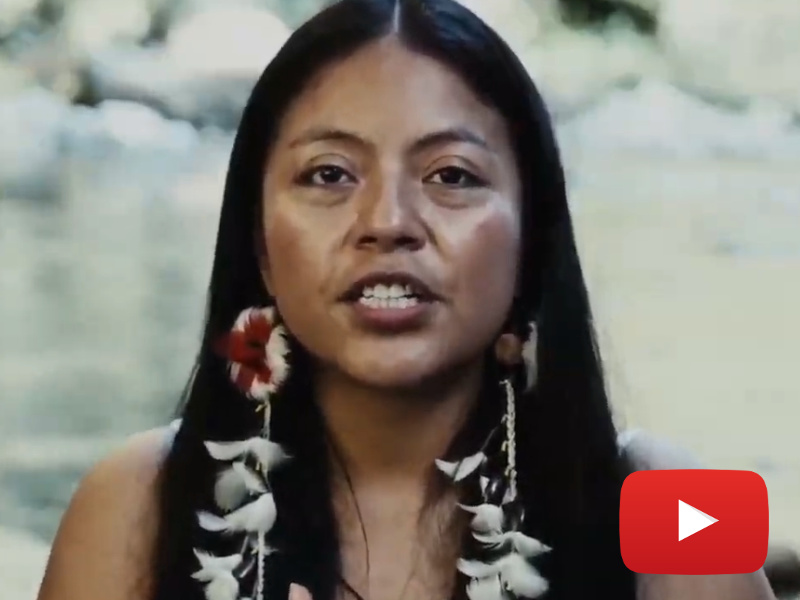Written By Cristiano Navarro, Brasil de Fato
Translated by Natalia Taddei
Bolivians will be affected by the dam projects, yet their lands have been not included Brazil’s environmental impact study.
The powerful economic and political interests surrounding the rapid construction of two hydroelectric dams on the Madeira River are flooding into dozens of communities of farmers, fishermen and indigenous peoples.
The first evictions brought on by the Madeira Complex forced 48 fishing and farming families from their community of Engenho Velho to the “model” community of New Engenho Velho. The families were evicted as work began on the Santo Antônio dam. As indemnity for being forced from their land, families’ were offered 3 hectares and one and a half minimum wages per month for a year. Not all families accepted the compensation, choosing instead to move to the capital Porto Velho.
“I did not want to leave Engenho Velho, but there was no other way. In addition, the company made a lot of promises that they ended up not fulfilling. The soil here is poor for farming and the fish they promised – 15 kg per month per family – have not been delivered. People say ‘you are lucky – they gave you a house,’ but I had a house!” complained João Antonio, who now lives in New Engenho Velho.
The legacy of these people may soon be underwater. The couple Ceci Luiz Pereira Sales, a 56 year old fisherman, and Maria de Fátima da Silva Sales, a 53 year old housewife, were born, met, got married, and had 7 children and 11 grandchildren in the village of Jací-Paraná. Their fond memories now consumed by visits of technicians and representatives of the dam consortium have brought melancholy to the couple. “We can not imagine life away from here; all of our family lives here,” says the fisherman who lived for 35 years from the river’s fish.
Many families that are threatened with eviction by the coming dams have already fallen victim to the Samuel hydroelectric plant, a similar project during the 1980s. The violent eviction took the families by surprise, forcing them to rush from their homes.
This was the experience of Conceição da Silva, a MAB activist who lives in the Araras community. “In 1982, when I was evicted from Samuel, Brazil was under a dictatorship and nobody could complain. You could either flee or be covered by water,” she recalled. At the time Conceição moved to the Araras community where she made a living out of artisan mining, known as garimpo. In 1998, she attempted to live in Porto Velho, the capital of Rondônia state, but soon returned to Araras, where now she is again threatened with eviction by the hydroelectric dams being built on the Madeira River. Yet she endures this threat because she is “not able to get used to living in a big city anymore.”
The river’s borders
A three-minute boat ride across the Madeira from Conceição’s village lays the Bolivian municipality of Nueva Esperanza. The community was not included in the Brazilian government’s environmental impact studies, which claim that it will not be affected by the dams.
Just as uninformed and non-consulted as all the people in her municipality, Maria Rodriguez Bustamante, vice-president of the municipal council of Nueva Esperanza, asks: “how can it affect the other side of the river and not this one? The river does not know borders.”
Little less than one year ago, information about the Madeira Complex arrived by way of the neighboring MAB activist and the community, which subsists on basic agriculture and the gathering of Brazil nuts, began to mobilize. “Thanks to Conceição we are uniting Brazilian and Bolivian voices. We now have mobilized and traveled to Porto Velho and Belém to denounce our situation during the [World Social] Forum,” says Bustamante.
100 km south of Nueva Esperanza on the Mamoré river, Heber Muñoz Burgos, head of the Bolivian Rural Workers Union of Guayaramirín (CSUTCG), describes the authors of the Madeira River Complex as “birds of prey with eyes fixed on the Amazon.”
Prepared for confrontation, the head of the CSUTCG asserts, “we know that what they want is to cash in on our natural resources and exploit the soy agricultural frontiers in Bolivia and Peru, but they will not pass.”
“The Evo Morales government is not familiar with the project because he comes from the Andes, but we believe that with enough pressure and demonstrations by the Amazonian people he will have to change his mind,” speculated Burgos.
Fraudulence
The uncertainty and resistance of riverine communities has been echoed by Brazil’s Federal General Prosecutor’s Office (MPF) and Rondônia’s General Prosecutor’s Office (MP/RO). Now a lawsuit has been filed, claiming administrative fraud against Roberto Messias Franco, the president of the National Institute of Environment and Natural Renewable Resources (IBAMA).
The two bodies filed the suit against Messias Franco because he issued the installation license for the Jirau hydroelectric power plant in non-compliance with Brazil’s environmental or public tender law. The provisional license established 32 conditions for the issuance of an installation license. On May 24th, 2009, IBAMA denied the second license to the Jirau Plant because 12 of the 32 conditions had not been completely fulfilled. Read more about this inconsistency here.













